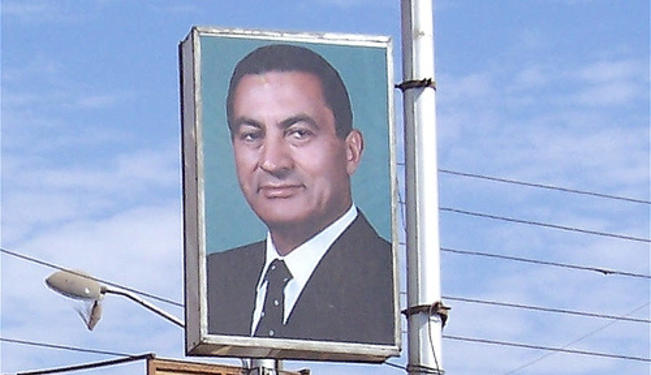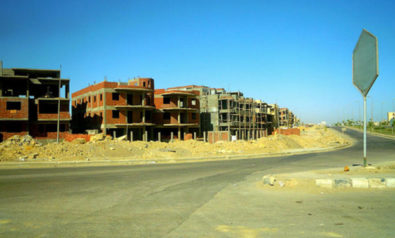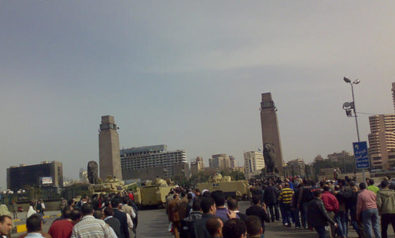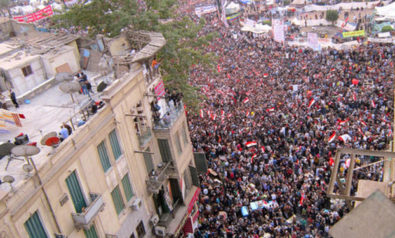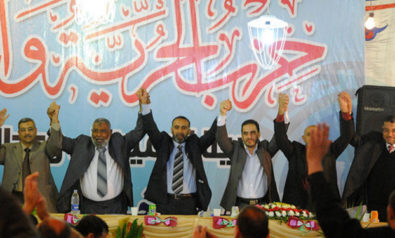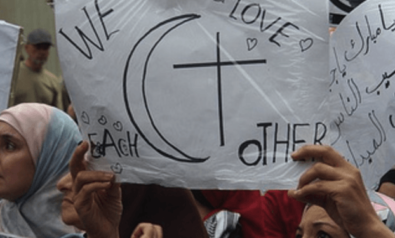A summary of the events which led to and which have followed the downfall of Hosni Mubarak as the president of Egypt.
The situation in Egypt surrounding the ongoing revolution which began in January 2011, has been a significant feature of news broadcasters across the world. The country which is seen as an important geopolitical nation and is considered the 'heart of the Arab world', disposed of its longstanding former president, Hosni Mubarak. On February 11, 2011, Mubarak was forced to resign from office given widespread protests against his rule. Consequently, he handed over power to the Supreme Council of the Armed Forces (SCAF), led by Field Marshall Mohammed Hussein Tantawi.
The events which led to Mubarak's downfall during the 18-day uprising were characterised by mainly peaceful protests across Egypt and particularly at the famous Tahrir Square in Cairo. Nationwide labour union strikes effectively paralysed the country, which were significantly more influential in toppling the regime than the actual demonstrations in Cairo, Alexandria, Port Said and elsewhere. The protests saw both secularists and Islamists, men and women, and Muslims and Christians galvanise and stand united in their quest to topple one of the Arab world's longest serving dictators.
Similar to the shabab (youth) in other parts of the Arab world, the youth in Egypt were disappointed with their future prospects in a country rife with corruption, growing wealth gaps, mass unemployment and human rights abuses. Notably, these are only some of the reasons why the university-educated and tech-savvy youth organised vast proportions of Egyptians to demonstrate following the downfall of Tunisia's former dictator, Zine El-Abideen Ben Ali.
Since the toppling of Mubarak, the mainly secular youth have continued to demonstrate on a regular basis against the rule of the SCAF, and have called for an end to military rule and the transfer of power to a civilian-led government. Prior to the start of the ongoing parliamentary elections in November 2011, thousands of protestors returned to Tahrir Square to call for the resignation of Tantawi. As a result, protestors were met with violent force by the military and security forces as the brutal crackdown on demonstrators was televised worldwide. The symbolic image of the situation was epitomised by the treatment of a young woman who was severely beaten by soldiers and had her abaya (an Islamic female over-garment) pulled off to reveal her bra.
Despite assertions made by the council that they will hold free and fair elections and relinquish power to a civilian elected president in the summer, demonstrators remain sceptical of the SCAF.
Meanwhile, Egypt has elected a new lower house of parliament with an overwhelming victory for Islamic or Islamist parties. The Muslim Brotherhood's Freedom and Justice Party won 47% of the seats and the religiously conservative Salafist An-Nour Party won 24%. Al-Wasat, a moderate Islamic party, won a small percentage of seats as well.
Whichever direction the newly elected parliament takes the country towards, the chants of Ash-sha'ab yureed isqat an-nidham (the people want the downfall of the regime) and irhal (leave) will surely be heard until the military relinquishes power.
The views expressed in this article are the author's own and do not necessarily reflect Fair Observer’s editorial policy.
For more than 10 years, Fair Observer has been free, fair and independent. No billionaire owns us, no advertisers control us. We are a reader-supported nonprofit. Unlike many other publications, we keep our content free for readers regardless of where they live or whether they can afford to pay. We have no paywalls and no ads.
In the post-truth era of fake news, echo chambers and filter bubbles, we publish a plurality of perspectives from around the world. Anyone can publish with us, but everyone goes through a rigorous editorial process. So, you get fact-checked, well-reasoned content instead of noise.
We publish 2,500+ voices from 90+ countries. We also conduct education and training programs on subjects ranging from digital media and journalism to writing and critical thinking. This doesn’t come cheap. Servers, editors, trainers and web developers cost money.
Please consider supporting us on a regular basis as a recurring donor or a sustaining member.
Support Fair Observer
We rely on your support for our independence, diversity and quality.
Will you support FO’s journalism?
We rely on your support for our independence, diversity and quality.

